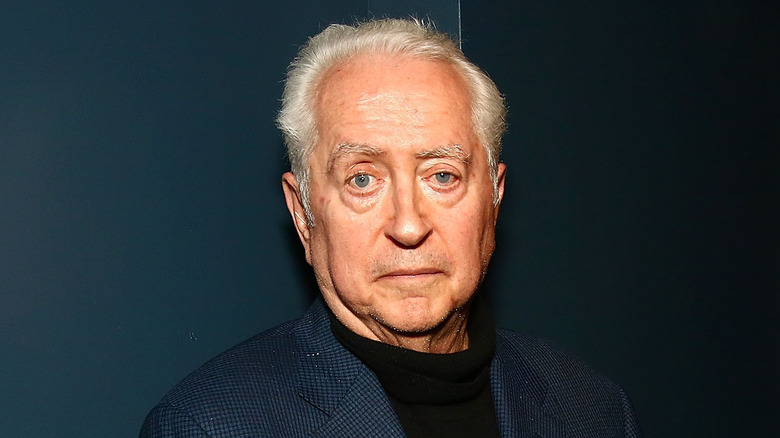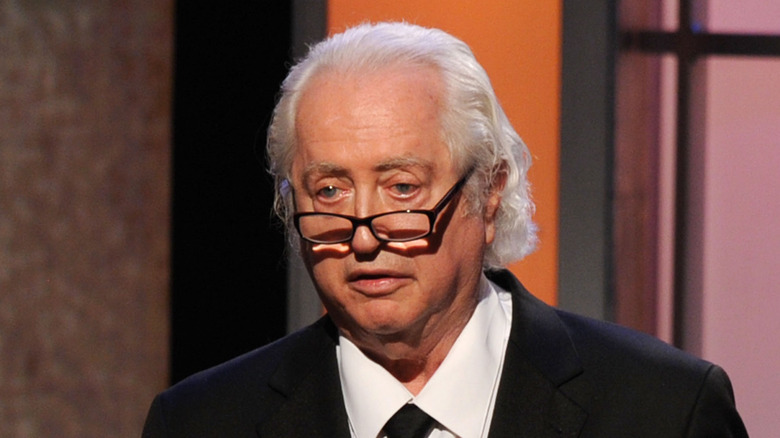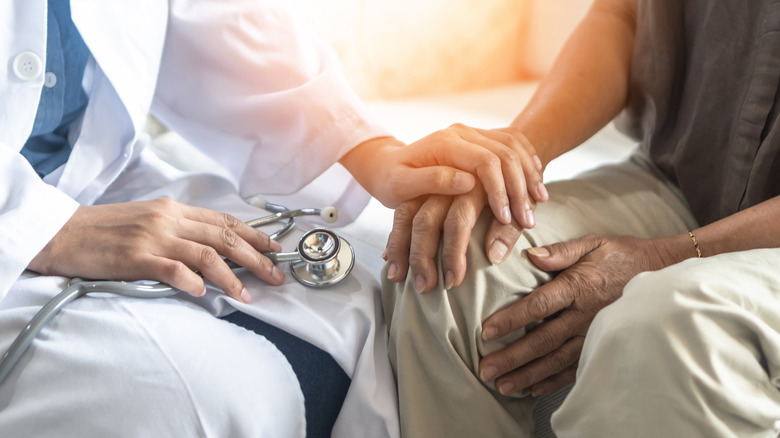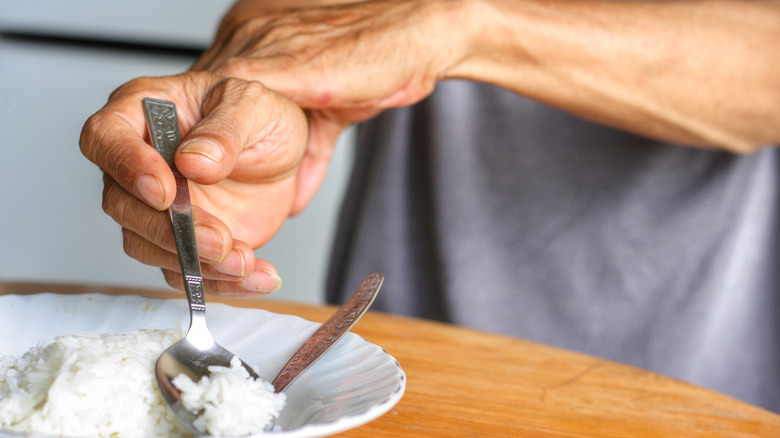Robert Downey Sr.'s Cause Of Death Explained
Robert Downey Sr., father of Robert Downey Jr., has died. According to New York Daily News, the actor and filmmaker passed on July 7th, 2021 in his home in New York City. Downey Sr. had a successful career in the entertainment industry as a writer, director, and actor. He was known for his work on films such as "Putney Swope," "Balls Bluff," "Babo 73," "No More Excuses," "Pound," and "Greaser's Palace," and "Hugo Pool" (via USA Today). He also acted in "Boogie Nights," "Magnolia," and "The Family Man."
Downey Sr. is survived by his son Robert Downey Jr., his daughter Allyson Downey, and his wife Rosemary Rogers. Downey Sr. married his first wife Elsie Ann Ford in 1962 and had both his children with her before the couple divorced in 1982. He then married Laura Ernst in 1991 and the couple remained together until Ernst's death in 1994. Downey Sr. wed Rogers in 1998.
Downey Sr. died after a battle with Parkinson's disease
According to Downey Jr., the elder Downey passed after battling Parkinson's disease for more than five years (via Insider). Downey Jr. posted a tribute on Instagram to break the news and honor his father on Wednesday morning.
"RIP Bob D. Sr. 1936-2021," Downey Jr. wrote. "Last night, dad passed peacefully in his sleep after years of enduring the ravages of Parkinson's ..he was a true maverick filmmaker, and remained remarkably optimistic throughout..According to my stepmoms calculations, they were happily married for just over 2000 years. Rosemary Rogers-Downey, you are a saint, and our thoughts and prayers are with you."
Downey Sr. worked with his son on a number of films. At only five years old, Downey Jr. debuted in "Pound" and later appeared in several of his dad's movies, including "Greaser's Palace," "Too Much Sun," and "Hugo Pool." The two acted together in the 1988 comedy "Johnny Be Good" and the 1994 comedy "Hail Caesar."
Parkinson's disease (PD) is a neurological disorder that affects movement
Parkinson's is a progressive neurological disease that causes the death of nerve cells in the brain that control movement to weaken and/or die (via Harvard Health Publishing). It predominantly targets neurons that produce dopamine, which is necessary for the body to regulate movement. Weakened neurons produce less dopamine and dead neurons don't produce any dopamine at all.
No one knows exactly what causes Parkinson's disease. However, some known risk factors exist. Men are 1.5 times more likely to develop PD than women and people over the age of 50 are more likely to be diagnosed. While most people with PD do not have a family history of the disease, there are certain inherited genetic patterns that can increase the risk of developing it. Environmental causes like exposure to certain chemicals in pesticides, metals, and pollutants can make someone more susceptible to the disease. Finally, repeated head injuries may increase someone's risk of getting PD.
Parkinson's disease progresses in stages
According to the Parkinson's Foundation, everyone experiences PD in a different way. "Not everyone will experience all the symptoms of Parkinson's, and if they do, they won't necessarily experience them in quite the same order or at the same intensity," Parkinson's Foundation said.
Although people are impacted differently by PD, the disease typically hits certain progression marks as it develops. These patterns of progression are called stages. There are five stages of Parkinson's.
During Stage One, the person usually has mild symptoms. These can include tremors on one side of the body, changes in posture, changes in walking, and changes in facial expressions. These symptoms usually do not interfere with daily activities. Symptoms begin to get worse during Stage Two and start to affect both sides of the body. The person may have trouble walking correctly. During State Three, the person usually begins to lose their balance and starts to perform some movements very slowly. Falling becomes an issue.
Stages Four and Five are the most severe. During Stage Four, the person may need a walker to help them walk. Most people in Stage Four can't live alone. During Stage Five, the person likely cannot walk or stand. They may need a wheelchair to go anywhere or may be bedridden. A person in this stage may have hallucinations as well.
There is no cure for Parkinson's disease, but a number of treatments can help manage symptoms
Treatment for Parkinson's will vary from person to person. Medications and therapies are usually used to manage symptoms and increase the comfort of the patient. Exercise can help people experiencing mild symptoms of stiffness and limited movement (via Cleveland Clinic). Different types of therapies can help with walking, balance, eating, and speech.
Medications can also be useful. Various medications can help the brain make more dopamine, mimic the effects of dopamine in the brain, block an enzyme that breaks down dopamine, and reduce certain symptoms of PD. Popular medications used to treat this disease include Levodopa, Amantadine, and Istradefylline. Drug categories including dopamine agonists, catechol O-methyltransferase (COMT) inhibitors, MAO B inhibitors, and anticholinergics can also help.
In severe cases of Parkinson's disease, surgery may help. Some surgeries target parts of the brain affected by PD and others can help keep a steady supply of medication in the body. If your loved one is diagnosed with severe Parkinson's, talk to your doctor to see if surgery is recommended. Medications and therapies can manage symptoms the majority of the time.
Patience and empathy are necessary to care for someone with Parkinson's
It can be difficult to care for someone with Parkinson's disease. While it takes a lot of time and effort, it also uses emotional energy to watch someone you love struggle with PD. The first thing to do when someone you love is diagnosed with PD is to learn everything you can about the disease (via Verywell Health). Understanding common symptoms, risk factors, and treatments can help you avoid frustration and worry when taking care of someone with PD.
It is important to be flexible every day, as the symptoms of Parkinson's can fluctuate every day. Keep a regular schedule, but be aware that you may need to pivot from your routine fairly often. You should also know all the symptoms of the disease and keep track of them regarding your loved one. This will help their doctor keep track of the disease's progression.
Above all, it is crucial to have empathy for your loved one. Having a disease like Parkinson's can be frightening and frustrating for them to experience. Be patient, be knowledgeable, and treat them with love.






